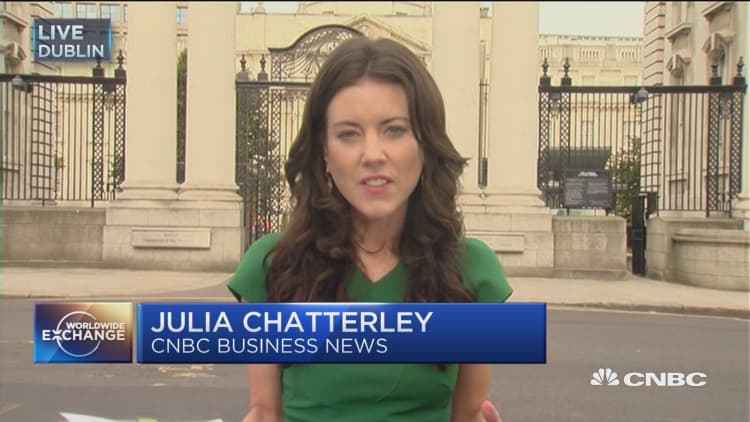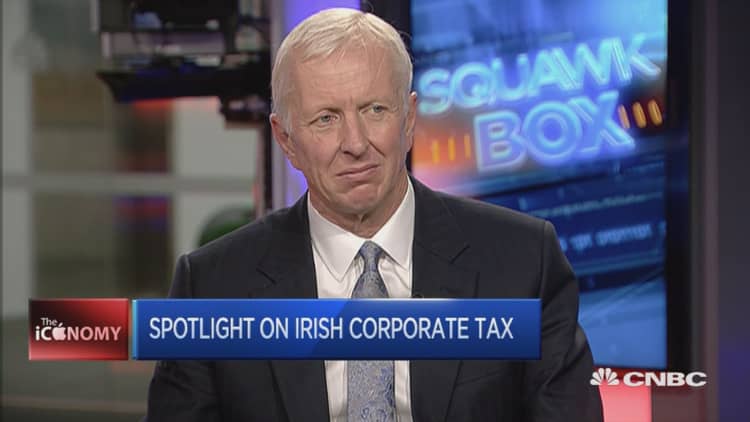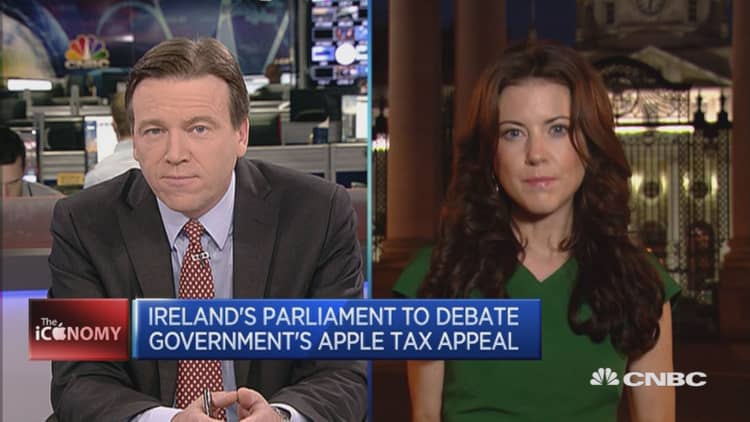









Irish Prime Minister Enda Kenny told CNBC on Wednesday he is confident of winning the appeal against the European Commission's ruling on Apple's taxes.
The country's premier spoke to CNBC a week after the European Commission, the European Union's executive arm, ruled that Ireland had granted Apple undue tax benefits. This is illegal under EU rules and the commission ordered the Irish government to recover up to 13 billion euros ($14.6 billion) — plus interest — from Apple.
Ireland opposed the ruling on fears that it would jeopardize its policy of wooing foreign businesses to relocate there
Ireland will appeal the ruling to provide "clarity and certainty," Kenny told CNBC in Dublin. Apple also plans to appeal.
"I am confident the appeal will succeed because what has happened here is that the European Commission has made a finding with regards to state aid rules, which crosses the threshold into tax competency, which is a matter for each individual country," Kenny told CNBC on Wednesday.
Ireland's low corporate tax rate of 12.5 percent makes it a popular European base for U.S. multinationals, particularly in technology and health care. The commission's complaint is not that Ireland has a low corporate tax rate, but that it offered special treatment to Apple — which Kenny denied.
Nonetheless, the Irish Department of Finance has already said the Irish Revenue Commission will have to collect the sum from Apple and place it an escrow account.
"In Ireland here, the Revenue Commission have always been completely independent of the state since 1923 and they are quite adamant and quite clear that there was no preferential treatment and no special deals, no sweetheart deals and that Apple paid the taxes that were due on their profits generated here in this country," Kenny told CNBC.
The European Commission says the tax arrangement offered to Apple by Ireland meant it paid an annual tax rate varying between only 0.005 percent and 1 percent.
Kenny said the commission was levying an "unprecedented" amount on Apple and that some of the alleged back taxes could actually be due to other European countries or the U.S.
"It is mirage money in many ways that is not ours to spend," he told CNBC, adding that Ireland could not become the "collector general for the world."
Despite the dispute, Kenny said Ireland would not be following the neighboring U.K. in quitting the European Union.
"We link our future to the euro, to the euro zone and to the European Union, while being the nearest neighbor of the United Kingdom, with obviously a common travel area and a very close working relationship with the U.K.," he said.
Apple CEO Tim Cook described the commission's ruling as "total political crap" and "completely unfair" in an interview with the Irish Independent last week.
However, Nobel-winning economist Joseph Stiglitz told CNBC on Friday that the ruling was neither punitive nor unfair.
"The fundamental point here is Apple unambiguously was trying to avoid taxes and it was doing it in a dishonest way, with complicity from the Irish government, pretending that the money, the profits, the billions of profits it was making, were really being originated in some Irish company that was registered in cyberspace and therefore did not have to pay any taxes. And anybody looking at that says that is a ruse, that is an attempt at tax avoidance, tax evasion, whatever you want to call it," the 73-year-old U.S. economist said.

